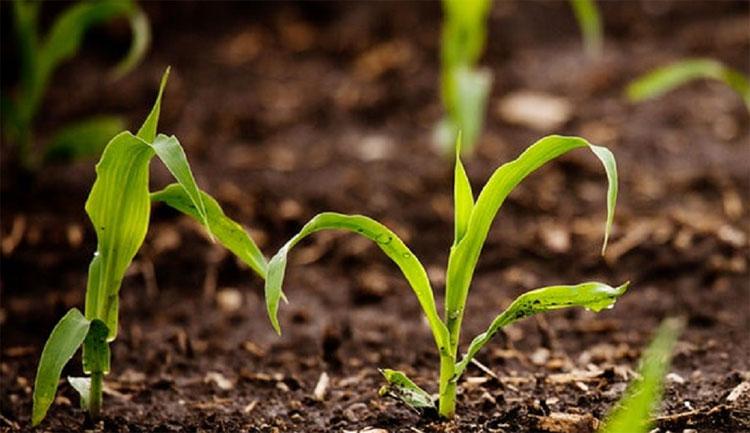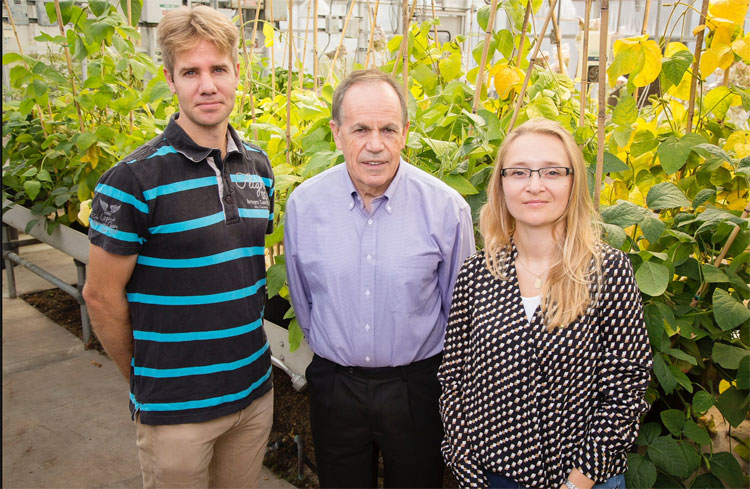New genetic modification method helps plants lose water less than 25%
US scientists have studied a simple genetic modification method that helps plants lose 25% less water than normal , so farmers can allocate better water in droughts. and efficient use of fresh water in the world.
An international research group from the University of Illinois (USA) has discovered a protein called Photosystem II Subunit S (PsbS) , which affects the exchange of gas and water between plants and the environment. Increasing this amount of PsbS protein in plants can reduce the amount of water escaping through the leaves, so that plants lose less water.

PsbS affects the opening and closing signals of air holes under the influence of light.
The tree drains through air holes in the leaves, which act as a carbon dioxide for the photosynthesis process. Therefore, balancing the amount of water released and the amount of CO2 taken helps the plants use water more efficiently.
PsbS is a protein capable of making plants retain water better, but still does not reduce the amount of carbon dioxide loaded. In experiments with tobacco plants, plants with more PsbS lost less water than normal plants, while maintaining constant yields.
Scientists say PsbS affects the opening and closing signals of the pores under the action of light. This is because PsbS causes a series of reactions that lead to narrower openings during photosynthesis, so that plants release less water.
Stephen Long, director of the research project, said: 'Evolution has not kept up with the rapid pace of environmental change, so science has to be involved.' The method of transforming PsbS gene will help to allocate better water throughout the season, and help plants produce better yields during dry periods.

Scientists believe that this method can be applied to many different plant species.
The results of this study are of great significance, in the context of drought that has become a global problem, and has up to 90% of the world's clean water used for agriculture.
Meanwhile, gene mutations related to PsbS still do not reduce the demand for carbon dioxide - the proportion of this gas in the atmosphere has increased by 25% over the past decade.
Because PsbS is quite common in green plants, scientists believe that this method can be applied to many different plant species, to ensure productivity in drought conditions. Since then, increasing the ability to provide food for the growing world population.
- The new method helps harvest 6 wheat crops a year
- Tobacco plants can replace gasoline
- Scary effects of genetically modified plants
- Genetically modified plants produce many new drugs
- Incest has happened 'like a meal' in ancient times?
- Believe it: Science creates bees from
- The monkey has a mother and a father
- Controversy about technology to create perfect babies
- Genetically modified order helps detect cancer early
- He bred successfully to produce a plant for fish oil
- For the first time in embryonic genetic modification history
- 5 Russian couples have agreed to use genetic modification so their children are not deaf?
 Why do potatoes have eyes?
Why do potatoes have eyes? 'Tragedy' the world's largest carnivorous life: Death becomes ... public toilet
'Tragedy' the world's largest carnivorous life: Death becomes ... public toilet Tomatoes were once considered 'poisonous' for 200 years
Tomatoes were once considered 'poisonous' for 200 years Detecting microscopic parasites on human face
Detecting microscopic parasites on human face How do marine animals drink filtered water?
How do marine animals drink filtered water?  Discover the secret of the water buffalo
Discover the secret of the water buffalo  Shocking discovery about the Earth's 'tail'
Shocking discovery about the Earth's 'tail'  Top 10 Unbelievable Ways Animals Survive in Dangerous Environments
Top 10 Unbelievable Ways Animals Survive in Dangerous Environments  Mysterious wonders of the world
Mysterious wonders of the world  The largest animals that lived in the desert, still exist today
The largest animals that lived in the desert, still exist today 